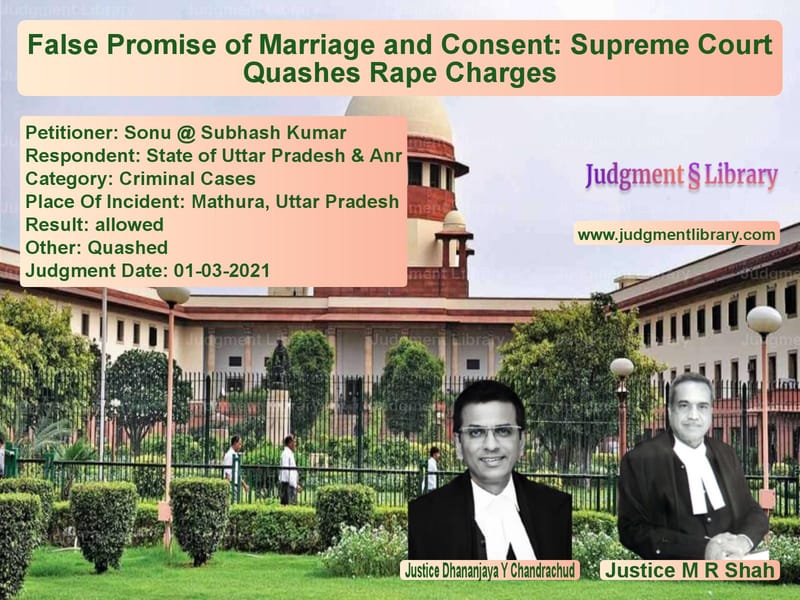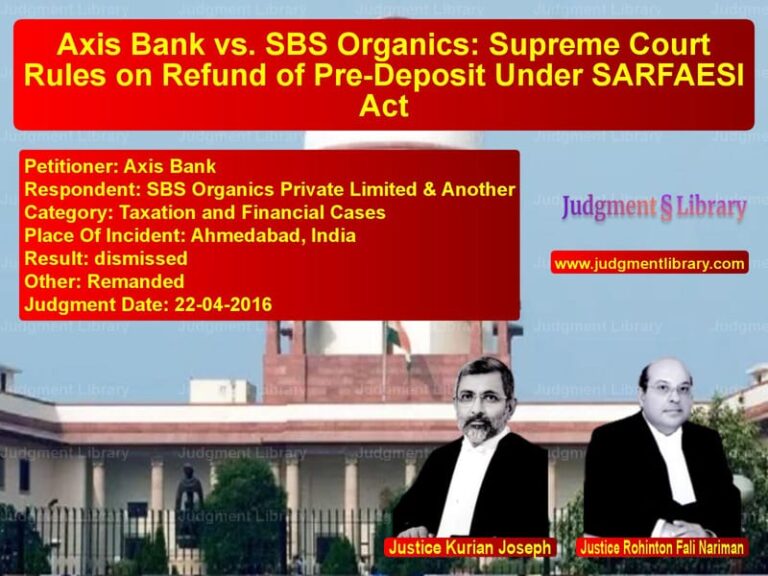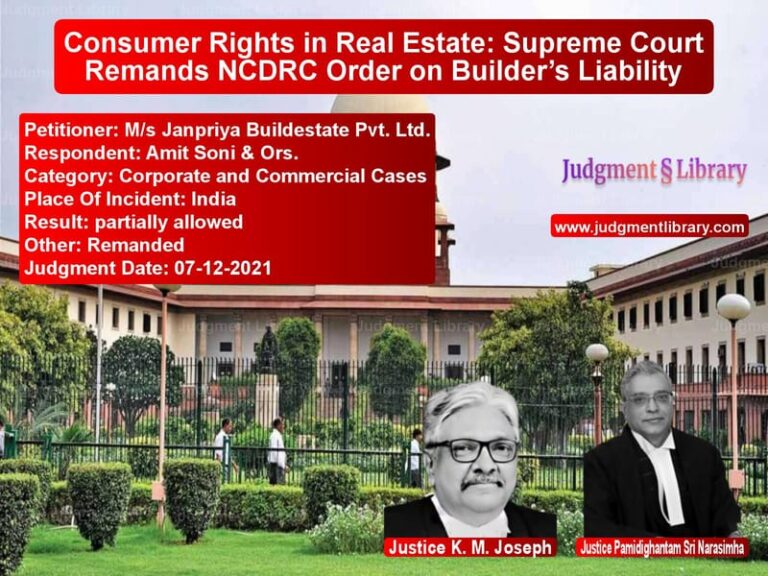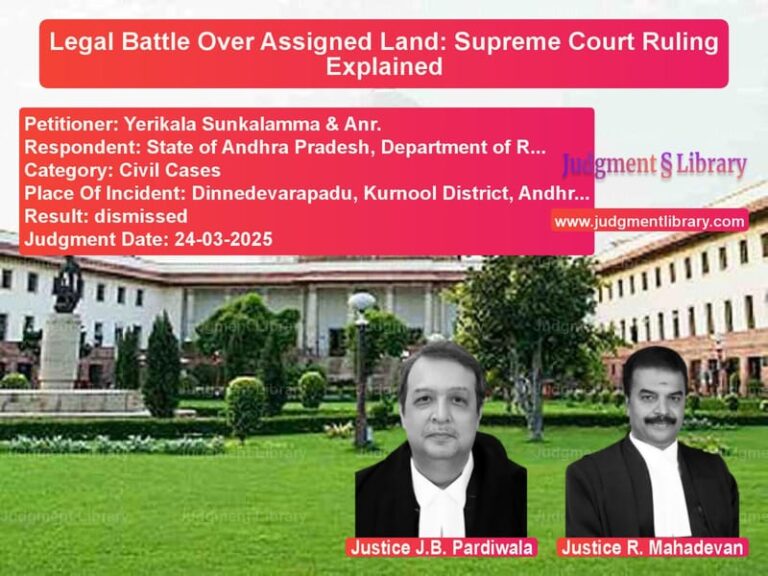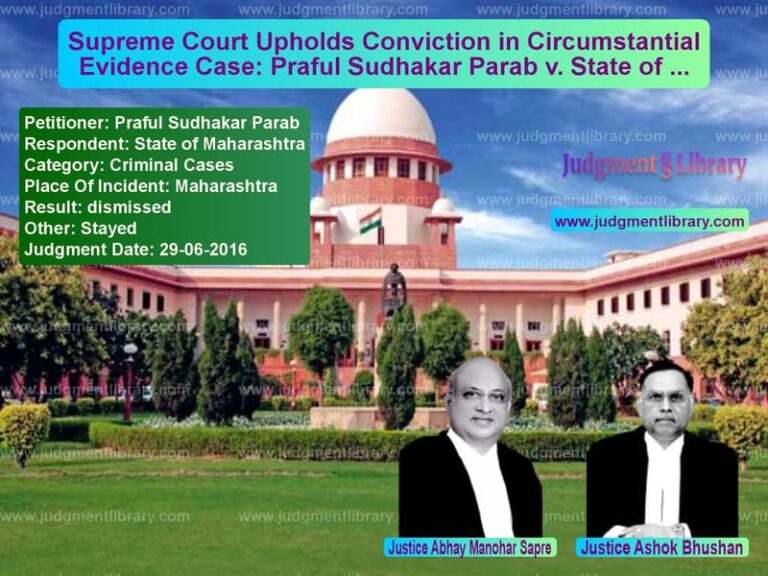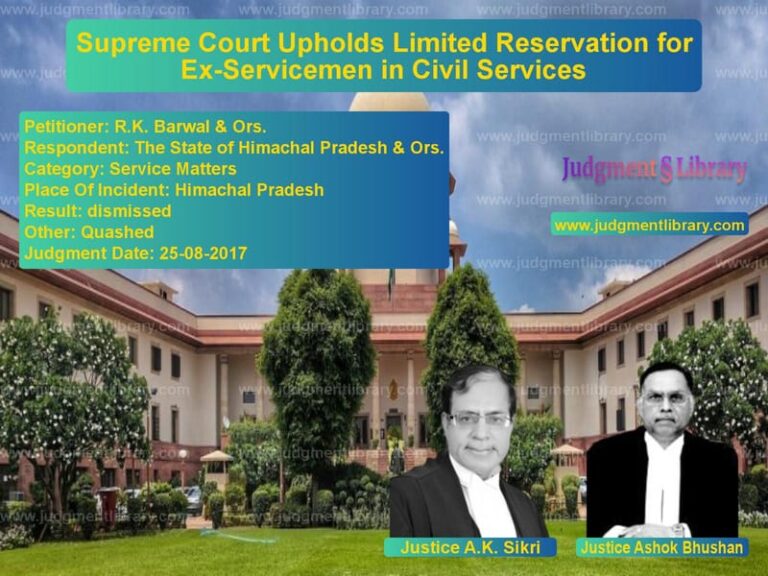False Promise of Marriage and Consent: Supreme Court Quashes Rape Charges
The Supreme Court of India recently delivered a significant judgment in the case of Sonu @ Subhash Kumar v. State of Uttar Pradesh & Anr, which involved allegations of rape based on a false promise of marriage. The case raised important questions about the interpretation of consent under Section 376 of the Indian Penal Code (IPC) and the conditions under which a breach of a promise to marry amounts to an offense of rape.
The Court, while analyzing the facts, emphasized that for a case under Section 376 IPC to be sustained, the prosecution must establish that the accused made a false promise of marriage with the intent to deceive the complainant into engaging in a physical relationship. If there is no evidence to suggest that the promise was false from the beginning, a breach of a promise alone would not attract the penal consequences of rape.
Background of the Case
The case originated from an FIR registered by the second respondent, who alleged that she had been in a relationship with the appellant for one and a half years. She claimed that the appellant assured her that he would marry her, and based on this assurance, she entered into a physical relationship with him. However, when she later traveled to his hometown, Jhansi, at his invitation, she was informed by his father that the appellant did not wish to marry her. She was allegedly assaulted by his sister and forced to leave their home.
The complainant subsequently filed an FIR under Section 376 IPC, asserting that her consent to the physical relationship was obtained under a false promise of marriage. She further alleged that the appellant’s family had initially agreed to their marriage but later refused.
Legal Arguments
Arguments by the Petitioner
The appellant, represented by Mr. Amit Pawan, contended that the relationship was consensual and did not constitute rape. His counsel relied on the Supreme Court’s decision in Pramod Suryabhan Pawar v. State of Maharashtra, where it was held that a false promise of marriage could vitiate consent only if it was made with an intent to deceive from the outset.
The counsel argued that:
- The appellant and the complainant were in a consensual relationship for over a year and a half.
- There was no evidence to suggest that the appellant never intended to marry the complainant.
- The FIR itself did not allege that the promise to marry was false from the beginning.
- The appellant’s subsequent decision to not marry the complainant does not constitute rape under IPC.
Arguments by the Respondents
The State of Uttar Pradesh, represented by Mr. Vishnu Shankar Jain, and the second respondent’s counsel, Mr. Simant Kumar, contended that:
- The complainant’s consent to the physical relationship was obtained based on the promise of marriage.
- Since the appellant later refused to marry, it amounted to a false promise.
- The High Court had rightly refused to quash the charge sheet, as it required trial evidence to determine the truthfulness of the appellant’s intentions.
Supreme Court’s Observations
The Supreme Court meticulously examined the FIR and the complainant’s statement under Section 164 of CrPC. The Court noted three crucial aspects:
- The relationship between the complainant and the appellant was consensual.
- The parties were involved for over a year and a half before the alleged refusal to marry.
- The appellant’s decision not to marry was a later development and did not establish a fraudulent intent from the beginning.
The Court referred to its previous ruling in Pramod Suryabhan Pawar and reaffirmed that:
“Where the promise to marry is false and the intention of the maker at the time of making the promise itself was not to abide by it but to deceive the woman to convince her to engage in sexual relations, there is a ‘misconception of fact’ that vitiates the woman’s ‘consent.’”
The Court further emphasized that a mere breach of promise is not equivalent to a false promise. It observed that for an offense of rape to be established, it must be proven that the accused had no intention of marrying the complainant at the time the relationship began.
Read also: https://judgmentlibrary.com/supreme-court-allows-recall-of-witnesses-in-tamil-nadu-corruption-case/
Final Judgment
In its concluding remarks, the Supreme Court held that the appellant’s promise to marry was not established as false from the outset. The Court set aside the High Court’s order and quashed the charge sheet dated 25 April 2018 and the order of the trial court dated 3 October 2018.
The ruling underscored that a breach of a marriage promise, without evidence of initial deceit, does not amount to rape under IPC. The judgment serves as a precedent in cases involving allegations of sexual assault based on a promise of marriage.
Legal Implications
This judgment is crucial in defining the legal contours of consent in cases involving relationships based on promises of marriage. It ensures that criminal provisions are not misused for cases where a genuine relationship breaks down due to personal reasons.
The ruling reinforces that:
- Consent given in a relationship is valid unless obtained through coercion or fraud.
- A broken promise to marry does not constitute rape unless it is proven that the promise was false from the beginning.
- The judiciary must distinguish between fraudulent inducement and genuine personal disputes.
By quashing the charge sheet, the Supreme Court has reiterated the need to uphold the sanctity of criminal law while preventing its misuse.
Petitioner Name: Sonu @ Subhash Kumar.Respondent Name: State of Uttar Pradesh & Anr.Judgment By: Justice Dhananjaya Y Chandrachud, Justice M R Shah.Place Of Incident: Mathura, Uttar Pradesh.Judgment Date: 01-03-2021.
Don’t miss out on the full details! Download the complete judgment in PDF format below and gain valuable insights instantly!
Download Judgment: sonu-@-subhash-kumar-vs-state-of-uttar-prade-supreme-court-of-india-judgment-dated-01-03-2021.pdf
Directly Download Judgment: Directly download this Judgment
See all petitions in Bail and Anticipatory Bail
See all petitions in Fraud and Forgery
See all petitions in Judgment by Dhananjaya Y Chandrachud
See all petitions in Judgment by Mukeshkumar Rasikbhai Shah
See all petitions in allowed
See all petitions in Quashed
See all petitions in supreme court of India judgments March 2021
See all petitions in 2021 judgments
See all posts in Criminal Cases Category
See all allowed petitions in Criminal Cases Category
See all Dismissed petitions in Criminal Cases Category
See all partially allowed petitions in Criminal Cases Category

